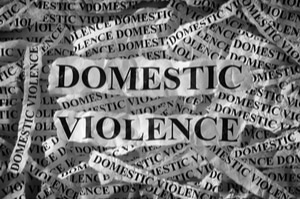How Common are False Domestic Violence Allegations?
 Domestic violence allegations can unravel a person’s life without evidence that they have done anything wrong; yet, false allegations are more common than most people think. To make matters worse, California courts do not pursue charges against individuals who falsely accuse others of domestic violence. This makes the issue of false allegations more prevalent since anyone can petition the court for a protective order for almost any reason.
Domestic violence allegations can unravel a person’s life without evidence that they have done anything wrong; yet, false allegations are more common than most people think. To make matters worse, California courts do not pursue charges against individuals who falsely accuse others of domestic violence. This makes the issue of false allegations more prevalent since anyone can petition the court for a protective order for almost any reason.
California is one of more than thirty states in which domestic violence victims do not need proof of a physical assault to receive a protective order from the court. There have been many cases in which individuals sought protective orders against others because they were made to feel “uncomfortable” or made up a story about domestic violence to gain an advantage in divorce proceedings. These narratives hurt those who wind up with protective orders against them and make it more challenging for courts to believe the stories of real victims; however, the system is designed in such a way as to encourage anyone who may be at risk of violence to seek protection.
So, while it is against the law to report crimes that didn’t happen, exceptions are made for domestic violence crimes to avoid discouraging victims from coming forward. Unfortunately, this emboldens people who hold grudges against their partners, and some may falsely claim to be victims of domestic violence without fear of repercussion. If you’re ever falsely accused of hurting a member of your family, you should seek legal counsel right away.
Overview of Domestic Violence in California
Domestic violence is a pervasive problem throughout the country, and police officers take reports of these incidents seriously. If they respond to a domestic violence call in your home, they must usually place someone under arrest. These incidents take place between family or household members, but the definition varies from state to state.
In California, domestic violence is abuse or threats of abuse against a person who has been in an intimate relationship with the abuser. An intimate relationship may take place through marriage, domestic partnership, dating, living together, or sharing a child together. Violence that transpires between people who used to be intimate through these means is also considered domestic violence.
There are many different kinds of abuse. By law, abuse is:
- Physically hurting or trying to hurt someone intentionally or recklessly
- Sexual assault
- Making someone reasonably afraid that they or someone else will be hurt
- Harassing, stalking, threatening violence or hitting; disturbing a person’s peace or destroying their personal property
Physical abuse may include more than hitting your partner. Kicking, shoving, pushing, pulling hair, throwing objects, or keeping your partner from freely coming and going from your household are abusive acts, as is the abuse of pets. Abuse may also be verbal, emotional, and psychological.
Why Do People Falsely Accuse Others of Domestic Violence?
To Gain Leverage During Divorce
One of the most common reasons for false domestic violence accusations is to gain favorability in a divorce proceeding or child custody arrangement. False accusations may seemingly come from nowhere, from a partner whom a person will leave or divorce. These allegations may also arise between couples already undergoing the divorce process. If it’s about time to negotiate on child custody, the parent who wants full custody may falsely accuse the other parent of domestic violence.
To Seek Revenge
Sometimes, people who do not have children together and feel that they have been wronged in a relationship come up with ways to seek revenge against their romantic partner. In some cases, these partners seek revenge by claiming they were victims of domestic violence. At other times, a particularly heated argument could be misinterpreted as an act of violence and reported by a neighbor or family member. It’s possible to charge a person with domestic violence even when no physical abuse or violence occurred. If a claim is made that violence occurred, without proof, the accused person would still need to disprove the claim.
Defend Yourself Against Domestic Violence Accusations in San Diego
False domestic violence accusations damage the lives of the accused. No one deserves to be criminally charged for a crime they didn’t commit; yet, unfortunately, this takes place every day. There may be several defenses available to challenge a charge of domestic violence, and, without physical evidence, these cases tend to be difficult to prosecute.
With a domestic violence defense lawyer on your side, there is hope that you can preserve your reputation and avoid penalties. Talk to attorney Dod of Dod Law to learn what steps you should take after a false domestic violence accusation. Call 619-814-5110 or complete our contact form for a free consultation.
At a Glance
Meet Attorney Dod Ghassemkhani
- Recent Case Results
- San Diego Criminal Defense Bar Association | Named San Diego County’s 2023 Trial Lawyer Of The Year
- Award Winning Criminal Defense Attorney
- The National Trial Lawyers: Top 100 Trial Lawyers
- Over 20 years of criminal defense experience
- 10.0 “Superb” Avvo Rating
